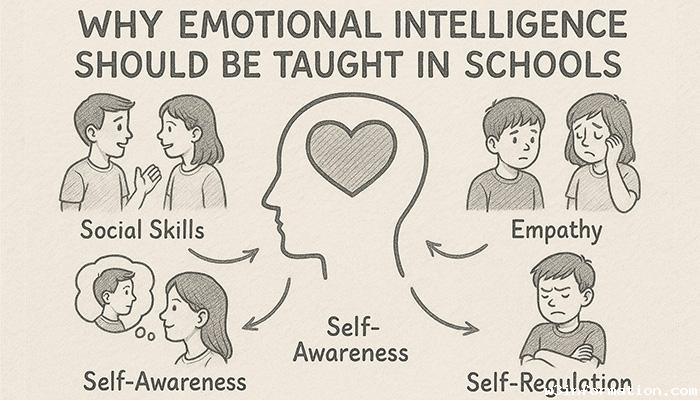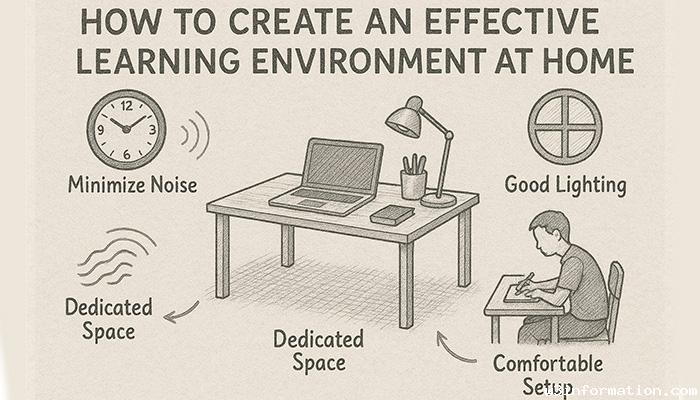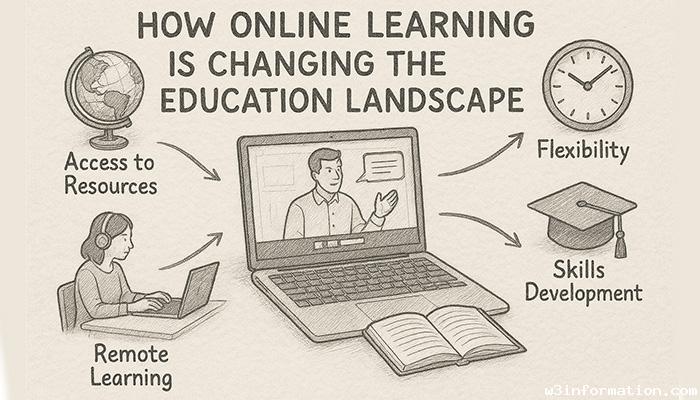Why Emotional Intelligence Should Be Taught in Schools
It is critical for educational institutions to incorporate emotional intelligence training into their programs because students need more than just academic knowledge to succeed in modern society.
The rapid and intricate emotional environment of today’s world demands more than academic knowledge to achieve success and maintain well-being. Emotional intelligence (EI) which involves recognizing and managing emotions in oneself and others has become an essential life skill according to current expert opinion. School curricula that include emotional intelligence training benefit students by promoting personal development while also improving academic performance and building stronger social relationships and future career opportunities
Improves Self-Awareness and Self-Regulation
When students learn emotional intelligence they improve their self-awareness which permits them to identify their emotions and comprehend how these feelings affect their behavior. Self-awareness plays an essential role in self-regulation which helps children control their impulses and emotions while making careful decisions. Schools that focus on developing these abilities during early education enable students to build robust emotional foundations.

Enhances Empathy and Social Skills
Empathy serves as one of the fundamental elements within EI because it involves understanding and connecting with others' emotions. The presence of empathy in schools promotes cooperative behavior alongside tolerance and acts of kindness. Students with developed social skills demonstrate better teamwork abilities and peaceful conflict resolution while establishing meaningful connections with both classmates and teachers.
Supports Mental Health and Resilience
Emotional intelligence serves as a proactive mental health solution for children and adolescents experiencing rising levels of stress and emotional challenges. When students learn to identify their emotions and express them while developing strategies to handle tough situations and understand when to seek support they build emotional resilience and well-being. It provides them with the strength to confidently approach life's challenges and opportunities.
Boosts Academic Performance
Academic performance improves among students who demonstrate elevated levels of emotional intelligence.Children who learn to manage their emotions experience better focus and motivation which leads to higher engagement in their studies. Emotional intelligence leads to better student communication and fewer classroom disturbances which creates a positive learning environment for students.
Prepares Students for the Workforce
Modern employers place great importance on soft skills like communication and collaboration which depend on emotional intelligence. Educators who teach EI in schools equip students to handle exam challenges and navigate workplace relationships since emotional competence can make or break professional advancement.
Fosters Responsible Citizenship
People who possess emotional intelligence demonstrate ethical conduct and respect for different viewpoints while making beneficial contributions to their communities. Education that includes emotional intelligence training helps students develop empathy and accountability while promoting social responsibility on a personal level.
Builds a Positive School Climate
The integration of emotional intelligence into school culture leads to the creation of a respectful and inclusive environment. Students develop active listening skills while learning to express their thoughts constructively and manage disputes without resorting to aggression. The shift toward cooperative classrooms creates less stressful environments which teachers find beneficial.
Conclusion
The development of well-rounded, resilient and empathetic persons depends on emotional intelligence which goes beyond being a luxury and becomes essential. The educational system shapes young minds and hearts for tomorrow's world and introducing emotional intelligence into school programs can produce a fully rounded educational experience. Children who learn emotional understanding and management become better equipped for academic achievement and healthy interpersonal relationships.
 The Future of Higher Education: Trends to Watch
The Future of Higher Education: Trends to Watch
 How to Create an Effective Learning Environment at Home
How to Create an Effective Learning Environment at Home
 Top 10 Study Tips for Students
Top 10 Study Tips for Students
 How Online Learning is Changing the Education Landscape
How Online Learning is Changing the Education Landscape
 How to create backend CRM using React JS
How to create backend CRM using React JS